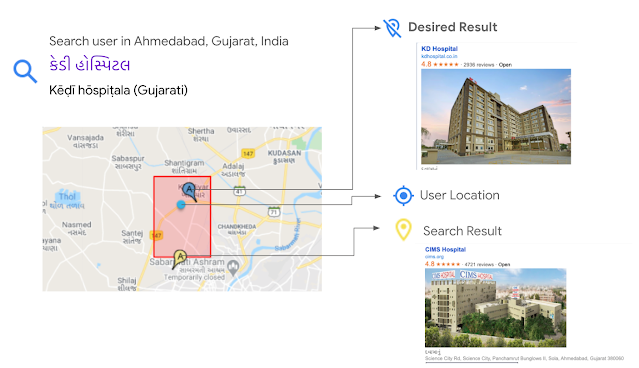Google Maps, understanding that the number of non-English users with access to internet and modern technology in India is burgeoning, is trying to help this segment use the application with greater felicity. Google Maps will now ‘transliterate’ names into native Indian languages with more ease.
This feature will allow users to issue queries on Google Maps in their own language and find information such as restaurants, petrol pumps, hospitals, grocery stores, banks, bus stops, train stations, and numerous other services.
"These names are often in English and may be combined with acronyms based on the Latin script, as well as Indian language words and names. Addressing such mixed-language representations requires a transliteration system that maps characters from one script to another, based on the source and target languages, while accounting for the phonetic properties of the words as well," Google said in a blogpost.
- Google Maps update adds new wheelchair-friendly feature - here's how to get it
- Apple Maps gets major visual overhaul in fight against Google Maps
- Google Maps finally has a dark mode
- Google Maps' new update goes gung-ho on the Covid-19 safety features
Results shown in relevant local language

The transliteration is now provided in 10 Indian languages -- Hindi, Bengali, Marathi, Telugu, Tamil, Gujarati, Kannada, Malayalam, Punjabi, and Odia.
By using automatic transliteration from the Latin script (English) name of points of interest, Google Maps now displays their names in the relevant local language.
Google gave an example on how lack of transliteration threw misleading results hitherto.
"For example, consider a user in Ahmedabad, Gujarat, who is looking for a nearby hospital, KD Hospital. They issue the search query, કેડી હોસ્પિટલ, in the native script of Gujarati, the 6th most widely spoken language in India. Here, કેડી (“kay-dee”) is the sounding out of the acronym KD, and હોસ્પિટલ is “hospital”. In this search, Google Maps knows to look for hospitals, but it doesn't understand that કેડી is KD, hence it finds another hospital, CIMS. As a consequence of the relative sparsity of names available in the Gujarati script for places of interest (POIs) in India, instead of their desired result, the user is shown a result that is further away."
To benefit millions of Indians immediately
To address the language challenge, Google built an ensemble of learned models to transliterate names of Latin script POIs into many of the languages prominent in India
Using this ensemble, they have added names in these tden languages to millions of POIs in India, increasing the coverage nearly twenty-fold in some languages. The company says that this will immediately benefit millions of existing Indian users who don't speak English.
Google also clarified that the transliterated POI names are not translations.
from TechRadar - All the latest technology news https://ift.tt/3chsamR


0 Comments